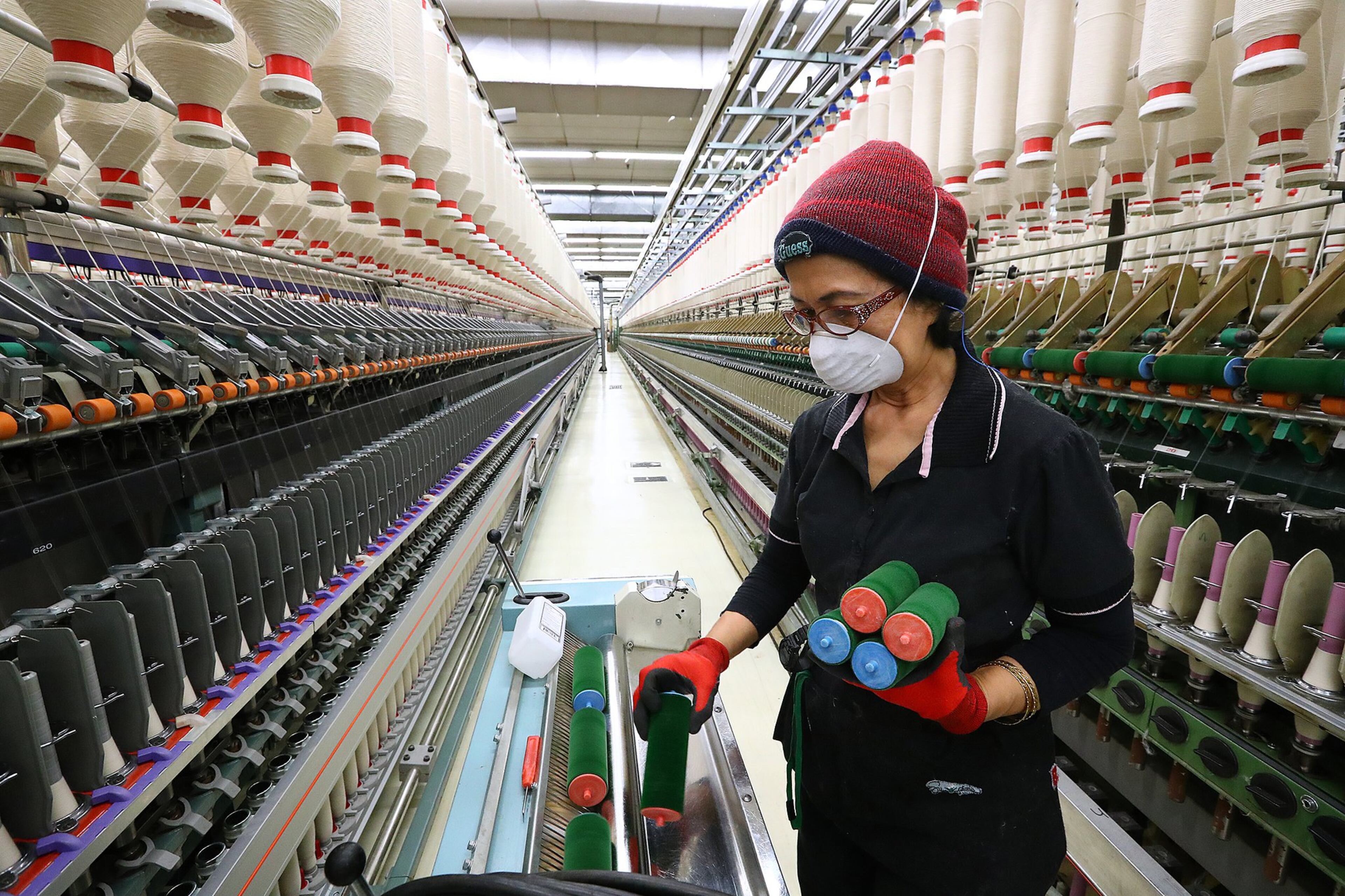Look out for I, Robot: 8 jobs soon to be lost to automation
While Jordan Peele's psychological thriller "Us" put viewers on edge about doppelgangers, robots with the capacity to automate tasks might present a more pressing fear in 2019.
According to artificial intelligence experts, automation will swallow up certain jobs. And this is not in some distant future. Predictions call for this AI revolution to eliminate jobs beginning this year and growing for the foreseeable future.
AI expert and venture capitalist Kai-Fu Lee told "60 Minutes" he anticipated robots will affect 40 percent of the world's jobs. "I believe it's going to change the world more than anything in the history of mankind. More than electricity," he said. "Chauffeurs, truck drivers, anyone who does driving for a living—their jobs will be disrupted more in the 15-25 year time frame," he said in the interview. "Many jobs that seem a little bit complex, chef, waiter, a lot of things will become automated."

Lee adds fuel to the 2017 McKinsey Global Institute study that automation would claim 800 million human jobs by 2030. In general, most (but not all) of these jobs will "have repetitive functions and a fairly controlled environment," according to Kiplinger. "Many (but not all) don't pay well. Will you still be able to find a human at the wheel of a taxi in 2040? Probably; after all, you can still get your typewriter repaired today."
Savvy job seekers will start anticipating the AI shift asap. And the career paths to avoid if you want to sidestep automation takeovers are varied and include both blue collar and white collar positions. Here are eight jobs most likely to be taken over by robotics in the coming decade, according to Kiplinger and Digital Trends:
Lawyers
"While genuinely bespoke legal work still requires humans, A.I. can help perform tasks ranging from legal discovery (the pre-trial process in which lawyers decide which documents are relevant to a case) to creating contracts. They can even argue parking fines and handle divorce proceedings," Digital Trends noted.
Store clerks
"The Amazon Go store in Seattle (no checkouts, no lines – the Amazon app and in-store sensors handle it all) is an extreme vision of where we're headed," Kiplinger explained.
Drivers
"Fleets of autonomous vehicles owned by companies like Uber will have an enormous impact on professional human taxi drivers, while autonomous trucks will mean the same thing for long-distance drivers," according to DT.
Chefs
Surprised? According to DT, the foodie scene is ripe for AI takeover, from chef robots that can generate recipes and parings to robot cooks that can flip burgers and serve food at enviable speeds. "Add table delivery drones into the mix and you don't even need human waiters to deliver the food to customers," DT added.
Data analysts
According to Kiplinger, pulling together corporate reports and "looking at gobs of financial data to see what's normal and what's out of place is easy" for robots.
6. Telemarketers
Granted, lots of these jobs have already made their way overseas. But smart chatbots are poised to take over lots of the remaining telemarketing jobs, according to DT.
Manual laborers
From bricklaying to construction sites, warehouse work to picking fruit and vegetables on a farm, there are several manual labor jobs that are now carried out by robots, according to DT. "The advantage of these robots is their ability to work nonstop without getting tired."
Deliveries
"If the ride-hailing services can have their robotic cars drive people around, certainly one can bring you a pizza," Kiplinger said. Look for these to be smaller robots that know how to navigate sidewalk traffic, not AI versions of giant delivery trucks.
Jobs where robots won't take your paycheck
There is a bright spot in all this impending-automation news. There are still plenty of jobs that will not succumb to automation. Just a few of the top choices include creatives, teachers, sales managers and cosmetologists, according to the AJC.
And if you can't beat 'em, join 'em. Because in an ironic twist, the artificial intelligence job market will expand to offer millions of jobs that only highly-skilled, highly-educated humans can take on, according to Fortune. And not nearly enough people are trained to work at creating AI-based systems, according to Bloomberg, although the shortfall varies depending on the expert describing it. In any case, top researchers in AI will definitely be pulling down seven-figure salaries. So along with avoiding the job path that leads to looking over your shoulder for I Robot, consider joining the AI forces; it could be your next strong career move.
